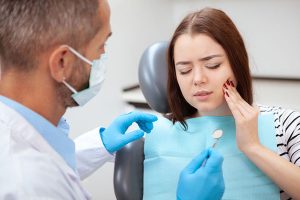How Hormones Shape Your Oral Health from Puberty to Menopause
 Ever wondered why your gums might feel extra sensitive during certain times of the month, or why your oral health seemed to change during pregnancy? It’s not just your imagination! Hormones play a surprisingly powerful, yet often overlooked, role in the health of your teeth and gums. At Kim Dentistry, Dr. Caroline Kim, your trusted Lansing, MI dentist, believes in empowering our patients with knowledge. Understanding the connection between your hormones and your oral health can help you take proactive steps to maintain a vibrant smile throughout every stage of life.
Ever wondered why your gums might feel extra sensitive during certain times of the month, or why your oral health seemed to change during pregnancy? It’s not just your imagination! Hormones play a surprisingly powerful, yet often overlooked, role in the health of your teeth and gums. At Kim Dentistry, Dr. Caroline Kim, your trusted Lansing, MI dentist, believes in empowering our patients with knowledge. Understanding the connection between your hormones and your oral health can help you take proactive steps to maintain a vibrant smile throughout every stage of life.
At Kim Dentistry, Dr. Kim and her caring team help patients in Lansing or surrounding areas like East Lansing and Okemos, navigate these changes with personalized care and guidance. To learn more, contact our Lansing office today by calling (517) 886-1100.
Choose Kim Dentistry for Quality Dental Guidance
When it comes to navigating the complex relationship between hormones and your oral health, you need a dental partner who is knowledgeable, compassionate, and committed to your well-being through every life stage. That’s precisely what you’ll find at Kim Dentistry, with our dedicated dentist in Lansing, MI, Dr. Kim.
Dr. Kim and our team prioritize patient education, ensuring you understand how systemic changes, like hormonal shifts, can impact your smile. We provide personalized care, from meticulous preventative cleanings to advanced restorative treatments, all tailored to your unique needs. Our commitment to using the latest dental technology and evidence-based practices ensures you receive the most effective and comfortable care possible. When you’re looking for the best dentist in Lansing who genuinely cares about your comprehensive health, you’ll find that Dr. Caroline Kim is the best dentist near you for holistic and informed dental guidance. We empower you with the knowledge and tools to maintain optimal oral health, no matter what life throws your way.
Hormonal Stages & Oral Health: What You Should Know
Puberty: The Start of Hormonal Shifts and Your Gums
As adolescents enter puberty, a surge of hormones, particularly estrogen and progesterone, can lead to increased blood flow to the gums. This heightened sensitivity can make gums more reactive to plaque and bacteria, even small amounts.
- Puberty Gingivitis: It’s common for teenagers to develop “puberty gingivitis,” characterized by red, swollen, and sometimes bleeding gums. This isn’t necessarily due to poor oral hygiene but rather an exaggerated inflammatory response to plaque due to hormonal changes.
- Increased Sensitivity: Brushing and flossing might become uncomfortable if gums are inflamed.
- Orthodontic Considerations: If your teen has braces, the combination of hormonal changes and areas where food can get trapped can exacerbate gum issues.
Regular brushing, flossing, and professional dental cleanings are even more important during these years to manage sensitivity and prevent more serious gum problems.
Menstruation: Monthly Cycles, Monthly Changes
 For many women, the monthly menstrual cycle brings with it subtle oral changes, primarily due to fluctuating estrogen and progesterone levels.
For many women, the monthly menstrual cycle brings with it subtle oral changes, primarily due to fluctuating estrogen and progesterone levels.
- Menstruation Gingivitis: Similar to puberty gingivitis, some women experience swollen, red, or bleeding gums a few days before their period begins. This usually subsides once menstruation starts.
- Canker Sores: Some individuals report an increased incidence of canker sores or mouth ulcers during their menstrual cycle.
- Dry Mouth: Hormonal shifts can sometimes contribute to temporary dry mouth, which can increase the risk of cavities if prolonged.
These changes are typically minor and temporary, but being aware of them can help you maintain consistent oral hygiene routines.
Pregnancy: A Critical Time for Oral Care
Pregnancy brings about significant hormonal surges, especially in progesterone and estrogen, which can have a profound effect on an expectant mother’s oral health.
- Pregnancy Gingivitis: This is very common, affecting up to 70% of pregnant women. The increased hormones amplify the body’s inflammatory response to plaque, leading to red, swollen, tender, and bleeding gums. If left untreated, it can progress to more severe gum disease.
- “Pregnancy Tumors” (Pyogenic Granulomas): These are benign, non-cancerous growths that can appear on the gums, typically between teeth. They are a localized inflammatory response to plaque, exaggerated by hormones, and usually disappear after delivery.
- Enamel Erosion (Morning Sickness): Frequent vomiting due to morning sickness exposes teeth to stomach acid, which can erode tooth enamel, increasing sensitivity and cavity risk.
- Dietary Changes: Cravings for sugary or starchy foods, coupled with increased snacking, can elevate cavity risk if not managed with meticulous oral hygiene.
Regular dental check-ups and cleanings are not only safe during pregnancy but highly recommended to manage these issues and protect both maternal and fetal health.
Menopause: Hormonal Decline and Oral Health Challenges
As women enter menopause, the significant drop in estrogen levels can lead to several oral health challenges.
- Dry Mouth (Xerostomia): This is one of the most common complaints during menopause. Reduced salivary flow not only causes discomfort but also significantly increases the risk of cavities and gum disease, as saliva helps wash away food particles and neutralize acids.
- Burning Mouth Syndrome: Some women experience a chronic burning sensation in the mouth, often on the tongue, lips, or palate, which is linked to hormonal changes.
- Gum Disease Progression: The decline in estrogen can make gum tissues more susceptible to inflammation and bone loss, potentially accelerating the progression of periodontal disease.
- Osteoporosis and Jawbone Health: The systemic bone loss associated with osteoporosis, common after menopause, can also affect the jawbone. A weaker jawbone can impact tooth stability and the success of dental procedures like implants.
- Taste Alterations: Some women report changes in their sense of taste.
Maintaining excellent oral hygiene, staying hydrated, and discussing these symptoms with Dr. Kim is essential for managing oral health during menopause.
Frequently Asked Questions
Yes, hormonal birth control pills contain synthetic estrogen and/or progesterone, and like natural hormonal fluctuations, they can sometimes lead to similar oral changes. Some women might experience increased gum inflammation (gingivitis), especially during the initial months of starting or changing birth control. Your gums might appear redder, more swollen, or bleed more easily when brushing or flossing. It’s usually a mild effect, but it underscores the importance of maintaining excellent oral hygiene to counteract any increased sensitivity or inflammatory response.
For most women, “pregnancy gingivitis” significantly improves or resolves completely after delivery, as hormone levels return to their pre-pregnancy state. However, if the gingivitis was severe or if there was underlying plaque and tartar buildup, it’s possible that some inflammation could persist or even progress to more serious periodontal disease if not managed. That’s why it’s crucial to continue with good oral hygiene practices throughout pregnancy and to schedule a post-delivery dental check-up with Dr. Kim to ensure your gums have fully recovered and address any lingering issues.
Prioritize Your Oral Health Through Every Life Stage!
Understanding the profound impact of hormones on your oral health empowers you to take proactive steps to protect your smile. Whether you’re navigating the changes of puberty, pregnancy, or menopause, Dr. Caroline Kim and the compassionate team at Kim Dentistry are here to guide you. We serve Lansing, MI, and surrounding areas including East Lansing, Okemos, Holt, Haslett, and DeWitt, providing comprehensive and personalized dental care.
Don’t let hormonal shifts compromise your smile. Schedule your visit with the top dentist in Lansing by calling (517) 886-1100! Your optimal oral health is our priority!
